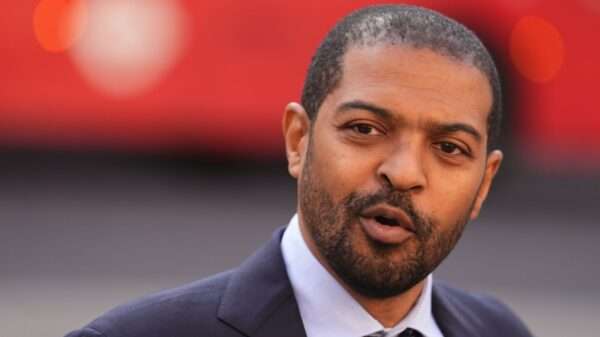An investigation has revealed that informal complaints about Russell Brand during his time at Channel 4 were not properly escalated, leading to concerns about the handling of misconduct allegations within the organization. Brand, a prominent comedian and actor, was associated with several programs on Channel 4 during the mid-2000s, a period marked by his controversial and provocative style. The investigation’s findings have brought to light systemic issues in the network’s complaint procedures, raising questions about the effectiveness of their response mechanisms to inappropriate behavior.
Several former staff members have come forward, sharing their experiences of working with Brand and detailing incidents that they felt warranted formal complaints. These individuals described a workplace culture where informal complaints about Brand’s behavior were not taken seriously and were often dismissed without thorough investigation. This lack of proper escalation meant that issues were not adequately addressed, potentially allowing problematic behavior to persist unchecked.
The investigation highlights a significant gap in the network’s handling of such complaints. Despite the presence of mechanisms intended to protect staff and address misconduct, these systems failed to operate effectively in practice. This failure has led to calls for a reevaluation of how complaints are managed, ensuring that all reports, regardless of their initial formality, are treated with the gravity they deserve.
Former colleagues of Brand have recounted instances where they felt uncomfortable or harassed but were reluctant to file formal complaints due to fear of repercussions or a belief that their concerns would not be taken seriously. The investigation found that this environment discouraged individuals from pursuing official channels, relying instead on informal complaints that were insufficiently addressed.
Channel 4 has responded to the investigation’s findings by acknowledging the shortcomings in their complaint handling processes during the period in question. The network has expressed a commitment to improving these procedures to ensure a safer and more respectful working environment for all employees. This includes revising their current policies to guarantee that all complaints, formal or informal, are properly investigated and that appropriate actions are taken in response.
The revelations about the mishandling of complaints against Russell Brand are not isolated to Channel 4. They reflect broader issues within the entertainment industry, where informal complaints have often been overlooked or inadequately addressed. This case underscores the need for comprehensive reforms to create a more accountable and transparent culture in workplaces across the sector.
The investigation’s findings have also prompted discussions about the role of leadership in fostering a workplace culture that prioritizes the well-being and safety of employees. Effective leadership is crucial in establishing and maintaining systems that encourage the reporting of misconduct and ensure that all complaints are handled with the necessary seriousness and sensitivity.
As Channel 4 works to address the failings highlighted by the investigation, it sets a precedent for other organizations to follow. Ensuring that informal complaints are given due consideration is essential in creating an environment where all employees feel safe and respected. The lessons learned from this case could lead to significant changes in how the industry handles misconduct allegations, ultimately fostering a more supportive and equitable workplace culture.















































